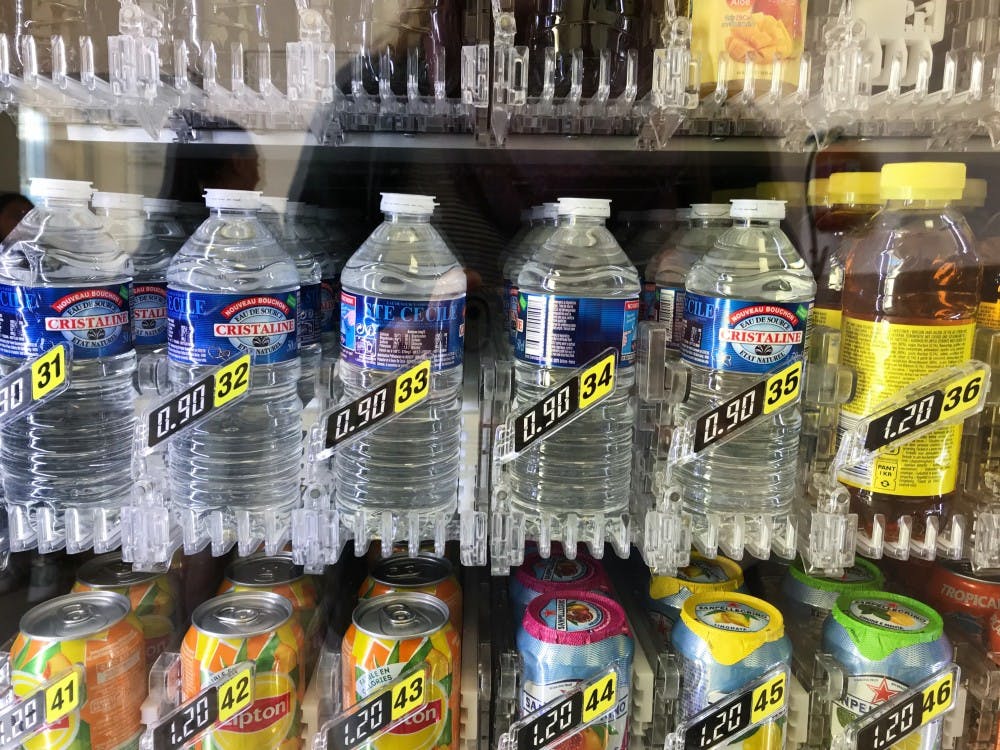I like my bright yellow Hydroflask water bottle.
Specifically I like what it says about me, that I care about the environment. I hate spending money on bottled water. I’m savvy enough to know about the ecological dangers of plastic, so I made the choice to carry a metal bottle instead.
In other words, my water bottle isn’t just a water bottle. It’s part of my identity. Since I have environmental sympathies, those concerns are marked by daily dress and how I present myself to the world.
Before arriving in Aix-en-Provence, France, to study here for the semester, I was excited to participate in a culture more environmentally conscious than the United States. When I began attending classes and saw my classmates drinking from plastic bottles instead of the stickered reusable bottles common at IU, I was shocked.
For the past few months, I’ve been baffled by the absence of reusable bottles in France. Don’t people here care about plastic pollution or climate change? If so, why are plastic bottles ubiquitous?
Then my family visited me, and we rented a car to do some sightseeing. After that, my confusion began clearing up. Why? A tank of gas for our modest-sized hatchback cost $45. That wasn’t all, though. We paid about $67 to drive from Paris to Aix-en-Provence, roughly an eight-hour trip, on the country’s privatized toll roads. In short, driving wasn’t cheap.
In France, high gas taxes motivate people to use nonvehicular, more energy-efficient modes of transportation, such as buses or trains. The reason for this policy is the need to reduce fossil fuel dependency.
France is facing repercussions for this, most recently with the rise of the “Yellow Vests,” a grassroots movement protesting, among other things, how the tax disproportionately affects rural and lower-income citizens who need to drive to work every day. According to Vox, the average price of a gallon of gas in France is about $7.06, which is incomprehensible to my American sensibilities.
The economic justice aspect of this policy aside, I think it’s fair to say the French government is making an effort to combat climate change.
Compared with this, my hang-up on water bottles seems like small potatoes. The smallest of small potatoes. And I’m a little scared to consider whether the rest of my environmentalism, such as my decision to buy as few new clothes as possible or my vegetarianism, also carries minuscule impacts.
David Wallace-Wells, author of the recently published book “The Uninhabitable Earth: Life after Warming,” discussed this politics of conscious consumption in an interview for “Still Processing,” a podcast produced by New York Times culture writers Jenna Wortham and Wesley Morris.
During the interview, he points out that the positive environmental impact of our obsession with things like recycling plastics is nearly inconsequential.
“It’s so small that it often feels like it’s just a way to distract ourselves from the real problem, you know, making us feel active when we’re actually not all that active,” Wallace-Wells said.
For Wallace-Wells, political action and policy change are the solution, not small changes in consumption.
He’s right. But there are a lot of forces at work in the American cultural consciousness telling me my tiny decisions do matter. Our belief in the power of individual action. Our rampant consumerism. The way personal identity is conflated with the purchases we make. The list goes on.
Still, though, I’m not comfortable with throwing out an environmentalism that dismisses the power of individual consumption decisions in favor of larger collective action. After all, overflowing landfills are an issue. In the past month, two dead whales washed up on shores in Italy and the Philippines with 48 and 88 pounds of plastic in their stomachs, respectively, according to the New York Times.
Environmental decision-making is complicated, hard and messy. If the Yellow Vest movement proves anything, it’s that striving for an emissions-free society is not without its growing pains and setbacks.
So I’ll keep sipping from my Hydroflask. At the very least, it keeps my water cold.






